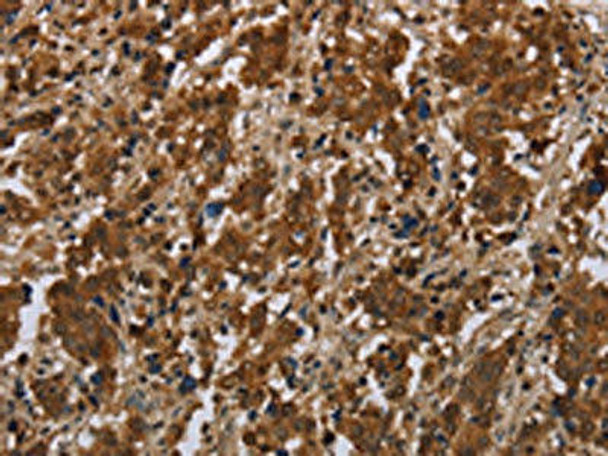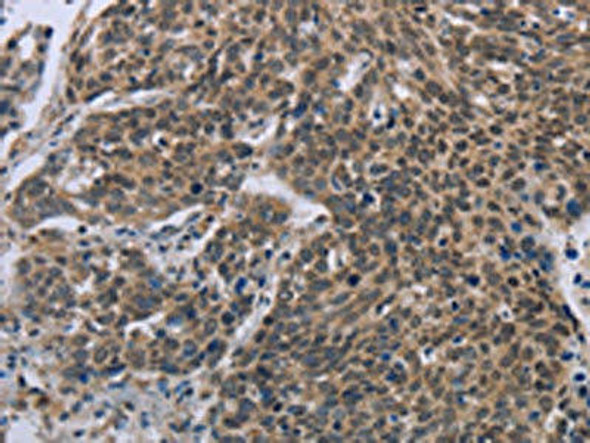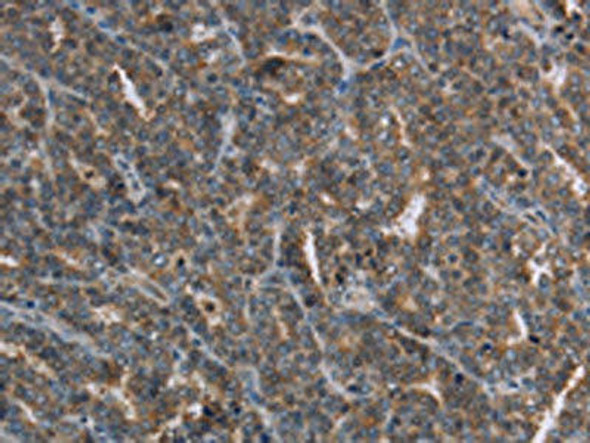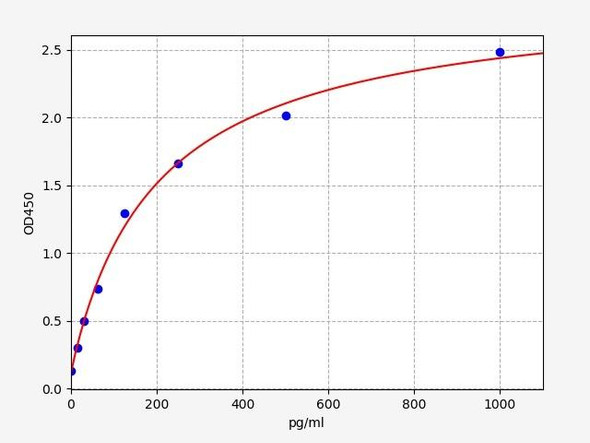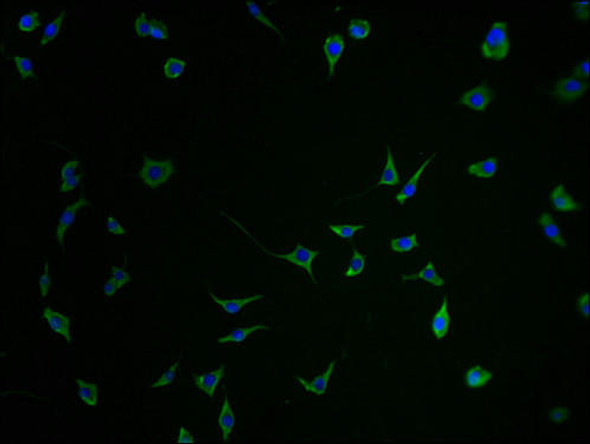Description
FGF20 Antibody (PACO19659)
The FGF20 Polyclonal Antibody (PAC019659) is a valuable tool for researchers studying fibroblast growth factor 20 (FGF20), a protein involved in various cellular processes including cell growth and development. Raised in rabbits, this antibody is highly specific to FGF20 and has been validated for use in Western blot applications. By binding to the FGF20 protein, researchers can accurately detect and analyze its expression in a wide range of cell samples.FGF20 is known for its role in promoting cell proliferation and differentiation, making it a key player in processes such as tissue repair and regeneration. Its dysregulation has been linked to diseases like cancer, neurological disorders, and developmental abnormalities.
By studying the function of FGF20 using this antibody, researchers can gain insights into its mechanisms of action and its potential as a therapeutic target in various disease contexts. Overall, the FGF20 Polyclonal Antibody is a versatile tool for researchers in the fields of cell biology, developmental biology, and cancer research who are interested in studying the role of FGF20 in health and disease. Its high specificity and reliability make it an essential component of any research project focused on understanding the functions of this critical protein.
| Antibody Name: | FGF20 Antibody (PACO19659) |
| Antibody SKU: | PACO19659 |
| Size: | 50ul |
| Host Species: | Rabbit |
| Tested Applications: | ELISA, IHC |
| Recommended Dilutions: | ELISA:1:1000-1:2000, IHC:1:25-1:100 |
| Species Reactivity: | Human, Mouse, Rat |
| Immunogen: | Synthetic peptide of human FGF20 |
| Form: | Liquid |
| Storage Buffer: | -20°C, pH7.4 PBS, 0.05% NaN3, 40% Glycerol |
| Purification Method: | Antigen affinity purification |
| Clonality: | Polyclonal |
| Isotype: | IgG |
| Conjugate: | Non-conjugated |
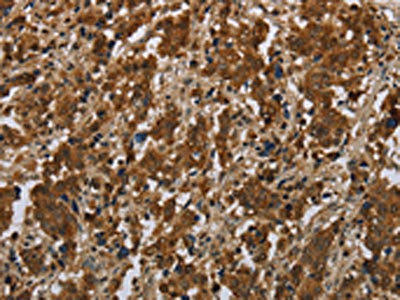 | The image on the left is immunohistochemistry of paraffin-embedded Human liver cancer tissue using PACO19659(FGF20 Antibody) at dilution 1/20, on the right is treated with synthetic peptide. (Original magnification: x200). |
| Background: | The protein encoded by this gene is a member of the fibroblast growth factor family. The fibroblast growth factors possess broad mitogenic and cell survival activities, and are involved in a variety of biological processes including embryonic development, cell growth, morphogenesis, tissue repair, tumor growth and invasion. This gene product is a secreted neurotrophic factor but lacks a typical signal peptide. It is expressed in normal brain, particularly the cerebellum, and may regulate central nervous system development and function. Homodimerization of this protein was shown to regulate its receptor binding activity and concentration gradient in the extracellular matrix. Genetic variations of this gene have been associated with Parkinson disease susceptibility. |
| Synonyms: | fibroblast growth factor 20 |
| UniProt Protein Function: | FGF20: Neurotrophic factor that regulates central nervous development and function. Belongs to the heparin-binding growth factors family. |
| UniProt Protein Details: | Protein type:Cytokine Chromosomal Location of Human Ortholog: 8p22 Cellular Component: extracellular region Molecular Function:1-phosphatidylinositol-3-kinase activity; phosphatidylinositol-4,5-bisphosphate 3-kinase activity; protein-tyrosine kinase activity; Ras guanyl-nucleotide exchange factor activity Biological Process: cell-cell signaling; fibroblast growth factor receptor signaling pathway; MAPKKK cascade; phosphoinositide-mediated signaling; regulation of phosphoinositide 3-kinase cascade; signal transduction Disease: Renal Hypodysplasia/aplasia 2 |
| NCBI Summary: | The protein encoded by this gene is a member of the fibroblast growth factor family. The fibroblast growth factors possess broad mitogenic and cell survival activities, and are involved in a variety of biological processes including embryonic development, cell growth, morphogenesis, tissue repair, tumor growth and invasion. This gene product is a secreted neurotrophic factor but lacks a typical signal peptide. It is expressed in normal brain, particularly the cerebellum, and may regulate central nervous system development and function. Homodimerization of this protein was shown to regulate its receptor binding activity and concentration gradient in the extracellular matrix. Genetic variations of this gene have been associated with Parkinson disease susceptibility. [provided by RefSeq, Oct 2009] |
| UniProt Code: | Q9NP95 |
| NCBI GenInfo Identifier: | 13626702 |
| NCBI Gene ID: | 26281 |
| NCBI Accession: | Q9NP95.1 |
| UniProt Secondary Accession: | Q9NP95,B2RPH5, |
| UniProt Related Accession: | Q9NP95 |
| Molecular Weight: | 23,499 Da |
| NCBI Full Name: | Fibroblast growth factor 20 |
| NCBI Synonym Full Names: | fibroblast growth factor 20 |
| NCBI Official Symbol: | FGF20 |
| NCBI Official Synonym Symbols: | RHDA2; FGF-20 |
| NCBI Protein Information: | fibroblast growth factor 20 |
| UniProt Protein Name: | Fibroblast growth factor 20 |
| Protein Family: | Fibroblast growth factor |
| UniProt Gene Name: | FGF20 |
| UniProt Entry Name: | FGF20_HUMAN |
| Antibodies | ELISA Kits |
| FGF20 Antibody (PACO01892) | Human FGF20 / Fibroblast growth factor 20 ELISA Kit |
| Human Fibroblast growth factor 20 (FGF20) ELISA Kit |
| Secondary Antibody |
| Anti-HRP Goat Anti-Rabbit IgG (H+L) Antibody (CABS014) |
| Recommended Products |
| Anti-FITC Goat Anti-Rabbit IgG (H+L) Antibody (CABS011) |
| Anti-HRP-conjugated Beta Actin Antibody (CABC028) |

